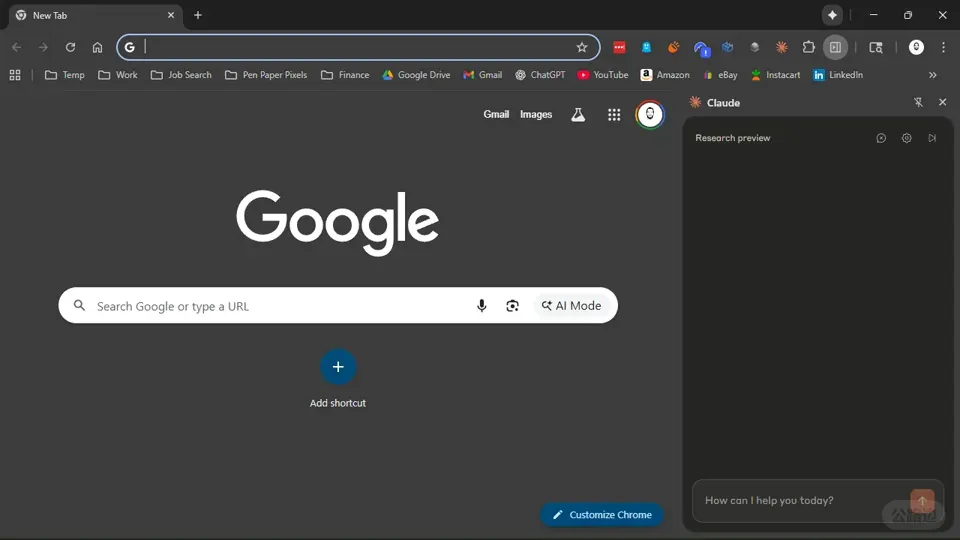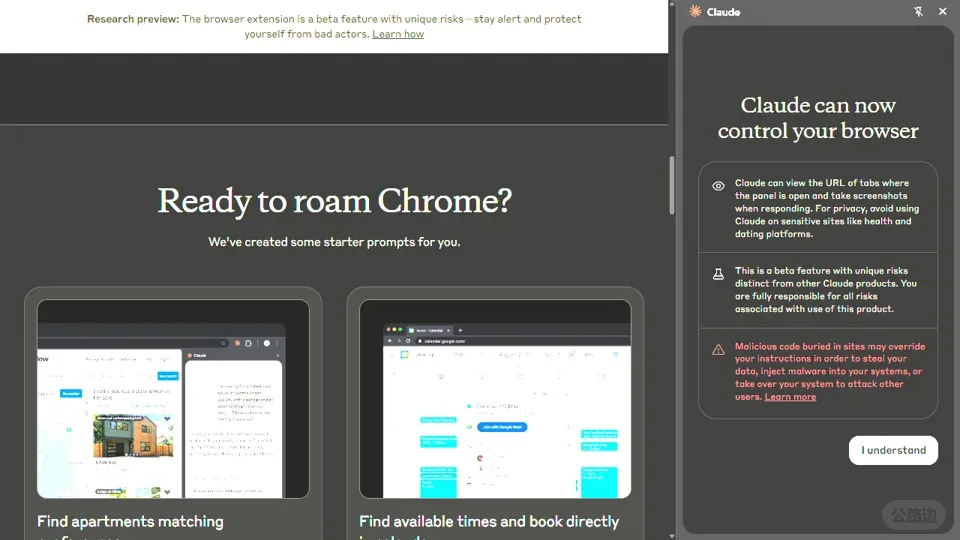
Claude’s AI Chrome Extension Won't Revolutionize Web Browsing (Yet!), But I Like Its Privacy Approach
Claude’s web agent needs more cooking, but it does put some thoughtful protections in place for your data right now. Here’s my advice for getting started with it.
Seemingly every AI chatbot has some sort of web agent feature nowadays, whether it’s ChatGPT’s Agent, Copilot's dedicated mode in Edge, Gemini’s Project Mariner, or Perplexity’s Comet browser. And now Claude is joining in on the craze with a Chrome extension that, like the examples above, can perform tasks for you as if it were an actual assistant, rather than just answer questions.
The extension is currently in an early research preview state. To try it out, you need to subscribe to Claude's Max tier ($100 per month) and join a waitlist. Courtesy of Anthropic, I was able to get early access and test it.
So what do I think? In short, Claude's extension doesn't work much better than competing features in other AI chatbots, but I do appreciate its unique approach to privacy and security. Here's everything you need to know.
What's It Like to Use Claude’s Chrome Extension?
Once you get access to Claude’s extension, setting it up is as easy as any other Chrome extension: For now, you can add it to your browser via a special Chrome Web Store link with just a click or two. I recommend pinning it to your browser toolbar for easy access. To actually use the extension, simply click on its icon. A side panel should open where you can prompt Claude to do whatever you want.

Claude’s extension, like Comet, pilots your open browser instance instead of launching and controlling a virtual one, like Agent and Project Mariner. I’ve tested both, but I'm still not sure which approach I prefer. ChatGPT’s Agent worked better than the rest for me, but not by much, and its virtual browser tech still leaves a lot to be desired. I do appreciate how automated bot detection protections on websites don't trip up Claude’s and Perplexity’s implementations as often.
So, what can you actually do with Claude’s extension? The only theoretical limit is your imagination; you should be able to ask Claude to do anything that you could do yourself in a browser. Unfortunately, the extension doesn't yet deliver on its promises. For example, when I tried to get it to find a nice curry recipe and add the necessary ingredients to my Instacart, it got stuck in a loop of asking me for permission to proceed. And when I asked it to make me a spreadsheet to track Warframe relics, it failed to actually manipulate the Google Sheets document that it created and opened.
However, its struggles aren't all that surprising. It's still in an early research stage, and competing tools have similar problems. When I tried Project Mariner’s experimental alpha, for instance, I couldn't accomplish much with it either. Both clearly need more development time. That aside, Anthropic still brings some compelling ideas to the table.
Claude’s Privacy and Security Precautions Stand Out
Web agent features usually go hand-in-hand with privacy and security concerns. For example, what happens if you let a web agent access your online bank account? And if these web agents require you to give up control of your browser, what happens if a malicious actor is able to take control over the agent? These are important questions that often go without good answers.
However, Claude has some solutions. For one, Claude’s Chrome extension simply isn’t allowed to access a variety of sites, even if you expressly ask it to. Blocked sites include those in “high-risk categories” such as adult content, financial services, and pirated content. Claude’s extension takes screenshots of your active browser tab to understand what’s happening within it, which means it can potentially see sensitive personal information. Barring it from accessing these sites helps protect your privacy and minimize harm in the event of a security compromise. Copilot Vision also blocks access to similar types of sites.

Claude’s extension also double-checks with you before taking any “high-risk” actions, such as publishing, purchasing, or sharing personal data. And even when you enable the extension’s autonomous mode, which allows it to take any action it deems fit, it still requires your permission for the aforementioned high-risk activities. In testing, the frequency with which Claude asks for confirmation or permission can be a little overbearing, but I appreciate these safeguards nonetheless.
Security is a principal concern for Anthropic, too, and the company is aware of the threat that prompt injection attacks pose. Imagine someone playing an audio file on your computer to get Alexa or Siri to do something. Prompt injection attacks for web agents play out in the same way. When you task a web agent to comb through your email, for instance, one message might contain an instruction to disregard all prior prompts and subsequently tell the AI to delete all your emails. Anthropic uses its action and permissions confirmations to mitigate these attacks, among other things. According to the company, the current protections in Claude’s Chrome extension significantly reduce successful prompt injection attacks.
For transparency, Claude regularly warns you and makes it clear exactly what its extension can do and what information it can access, too. Other web agents aren’t quite as straightforward, even if they aren’t necessarily trying to obfuscate what they do.
Claude’s Extension Is Worth Watching
Considering how quickly web agents are becoming the norm for chatbots, it seems inevitable that they will all reach a similar level of functionality at some point. Whether they can eventually save you the trouble of doing things on the web entirely remains a major question, as I haven't encountered any that make this possible yet. Claude's Chrome extension is no exception, but it does the best job of respecting your privacy among those I tested. I intend to keep an eye on Claude’s Chrome extension as it develops, as it someday might become the web agent to beat.
|